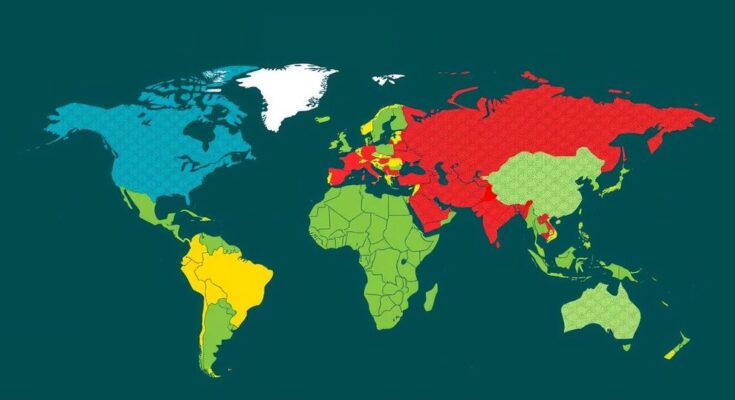Developing nations have criticized the $300 billion annual climate finance deal reached at COP29, deeming it inadequate to meet their urgent needs. Leaders from countries such as India and Nigeria called the agreement an insult, expressing disappointment in the commitment from wealthier nations, which they believe fails to address the severity of climate challenges. While the deal signals an effort toward financial support, it falls short of the necessary contributions highlighted by experts, emphasizing ongoing tensions in climate negotiations.
The recently concluded COP29 Climate Conference culminated in a contentious climate finance agreement that has been met with vigorous criticism from developing nations. The approved commitment, which mandates wealthier countries to contribute $300 billion annually by 2035, has been rejected by poorer nations as grossly inadequate considering the urgent need to address climate challenges exacerbated by historical pollution. Despite fierce negotiations, leaders from countries like India and Nigeria deemed the financial pledge an insult, pointing to a fundamental failure in meeting the needs of the most vulnerable populations.
During the conference, delegates from nearly 200 nations convened in Baku, Azerbaijan, where initial discussions failed to effectively address the growing frequency of climate-related disasters. Critics included India’s delegate, who expressed that the deal amounted to an “optical illusion,” suggesting that it did not effectively respond to the urgent crises faced by developing nations. Furthermore, Sierra Leone and Nigeria condemned the deal, indicating a severe lack of commitment from wealthier nations to uphold their responsibilities in climate mitigation.
The COP29 closing saw a struggle to find common ground on the crucial issue of fossil fuel emissions, with significant pledges regarding a transition away from these energy sources notably omitted from the final agreement. The delegation representing the Least Developed Countries characterized the agreement as a betrayal, emphasizing that it fell short of enhancing financial support for those negatively impacted by climate change.
Amidst the criticism, UN Secretary-General Antonio Guterres did acknowledge the deal as a potential starting point. Developed nations hastily presented the $300 billion figure as negotiations extended into the early hours. However, it is essential to note that many experts suggested a more appropriate contribution would be approximately $390 billion per year, further illustrating the gap between expectation and reality. The broader objective outlined in the deal aimed for a total of $1.3 trillion in climate financing per year, predominantly reliant on private sector contributions.
In summary, the outcome of COP29 reflects a complex interplay of geopolitical and economic factors that ultimately left developing nations feeling inadequately supported in their fight against climate change. The incongruence between the financial commitments from developed nations and the actual needs of those most severely affected underscores the ongoing challenges in achieving substantive progress in global climate policy.
The COP29 Climate Conference concluded with mixed outcomes, particularly regarding financial commitments from developed to developing nations. This conference was particularly critical as many nations face the immediate effects of climate change, including rising sea levels and increased frequency of natural disasters. The backdrop for the negotiations included rising global temperatures and a pressing need for financial aid to address these challenges. However, the stark contrast between expectations and the final agreements illustrates persistent divisions in international climate negotiations, particularly between historically polluting developed nations and the vulnerable developing countries.
In conclusion, COP29 yielded a climate finance deal that many developing nations have dismissed as insufficient in light of their impending climate challenges. The commitment of $300 billion annually, far below the recommended amount, has ignited a wave of criticism and accusations of bad faith among wealthier nations. This reflects ongoing friction in global climate governance and highlights the urgent need for more substantial financial support systems that align with the realities faced by the world’s most vulnerable populations.
Original Source: jordantimes.com




